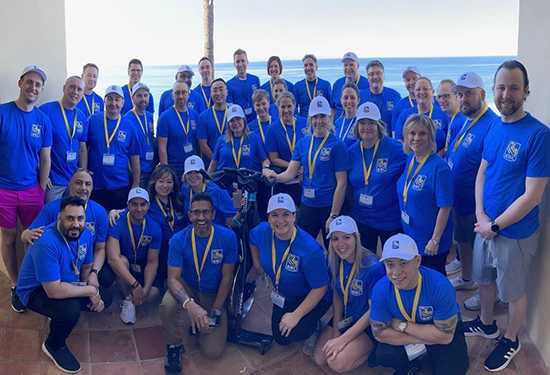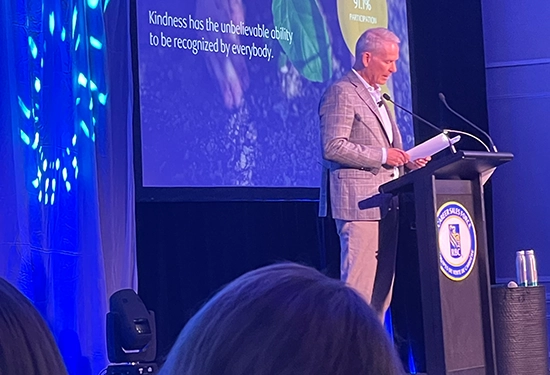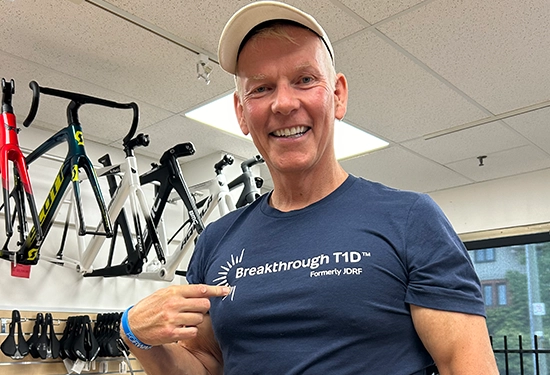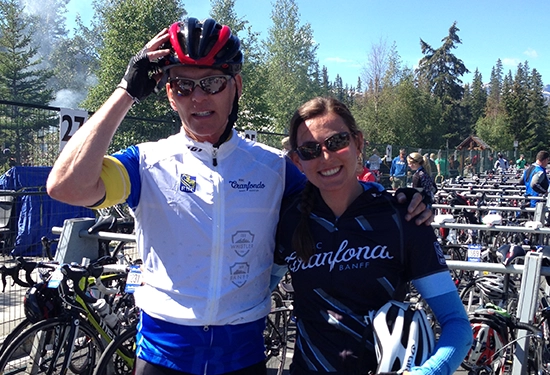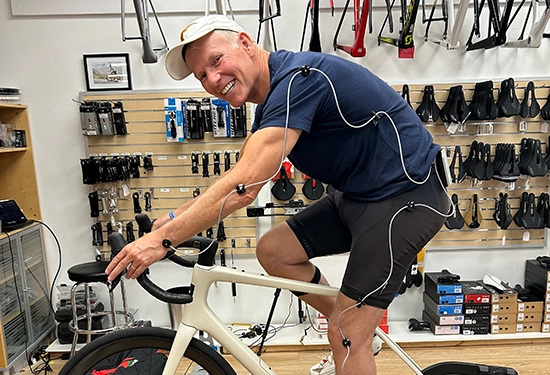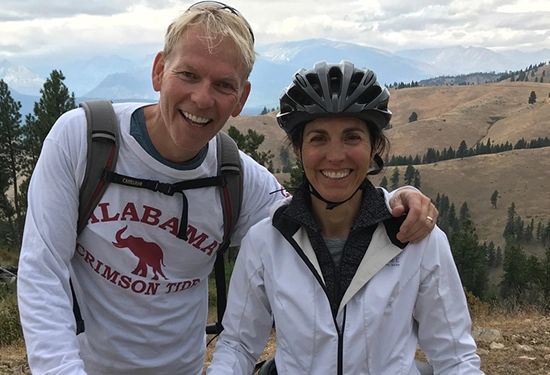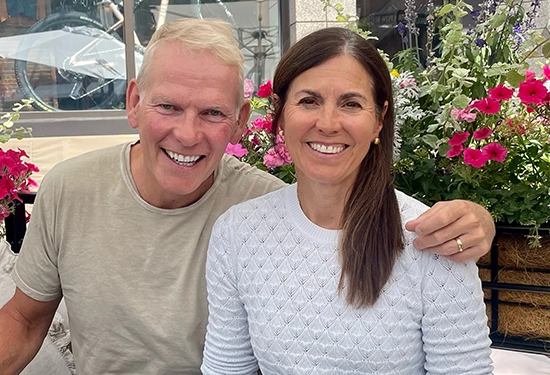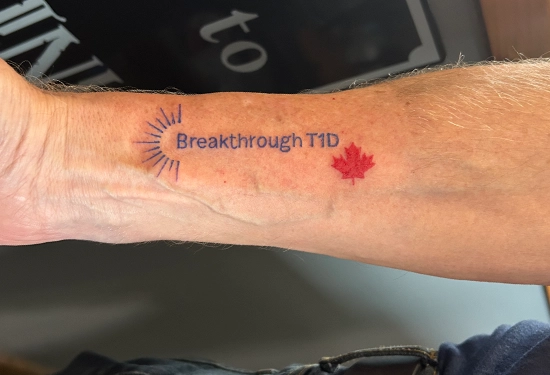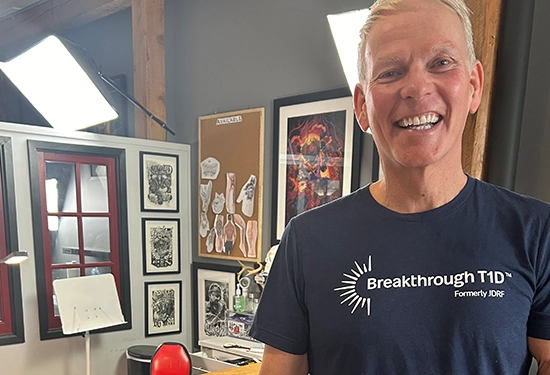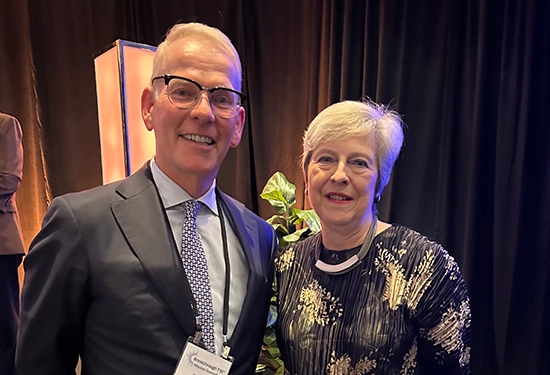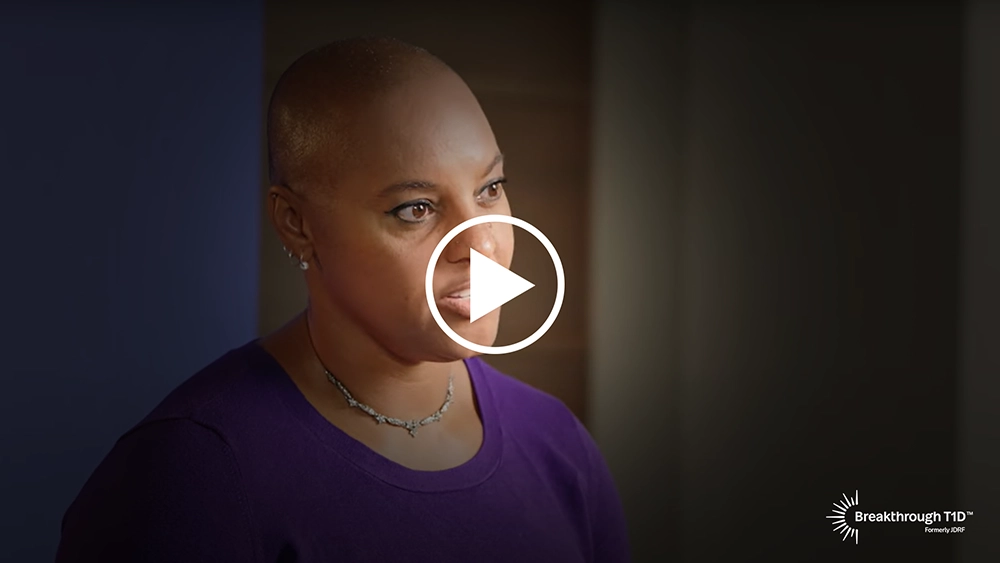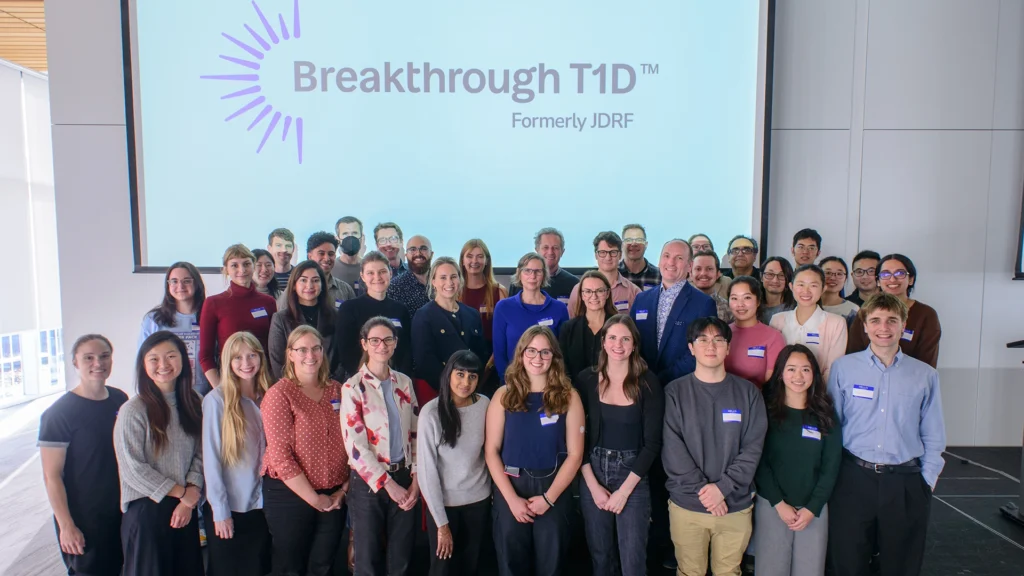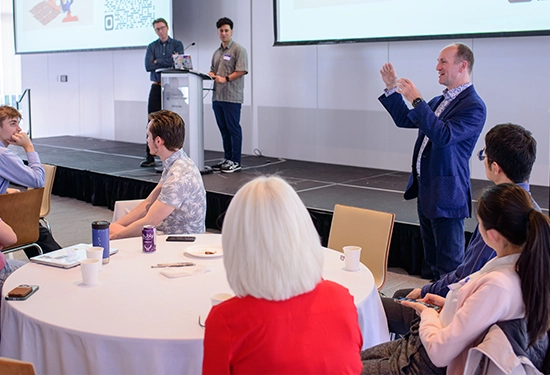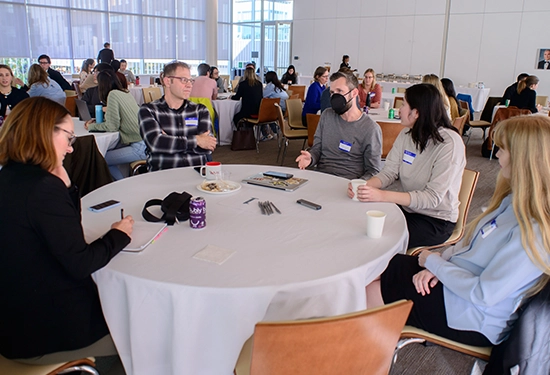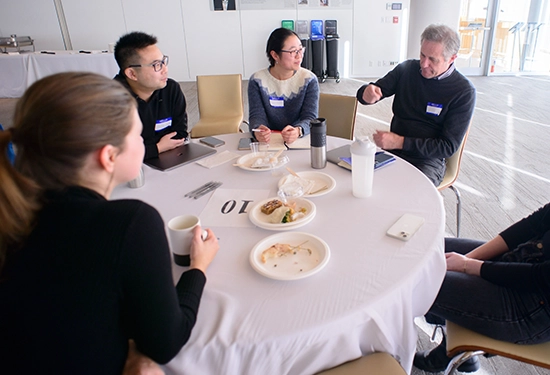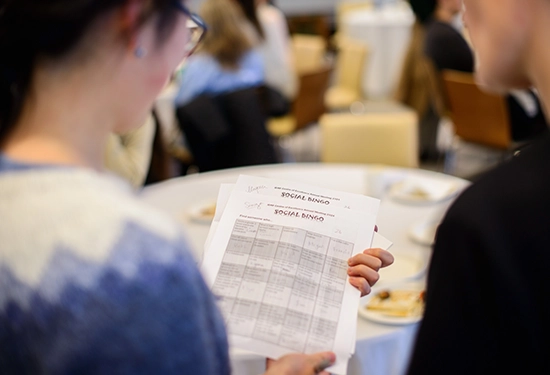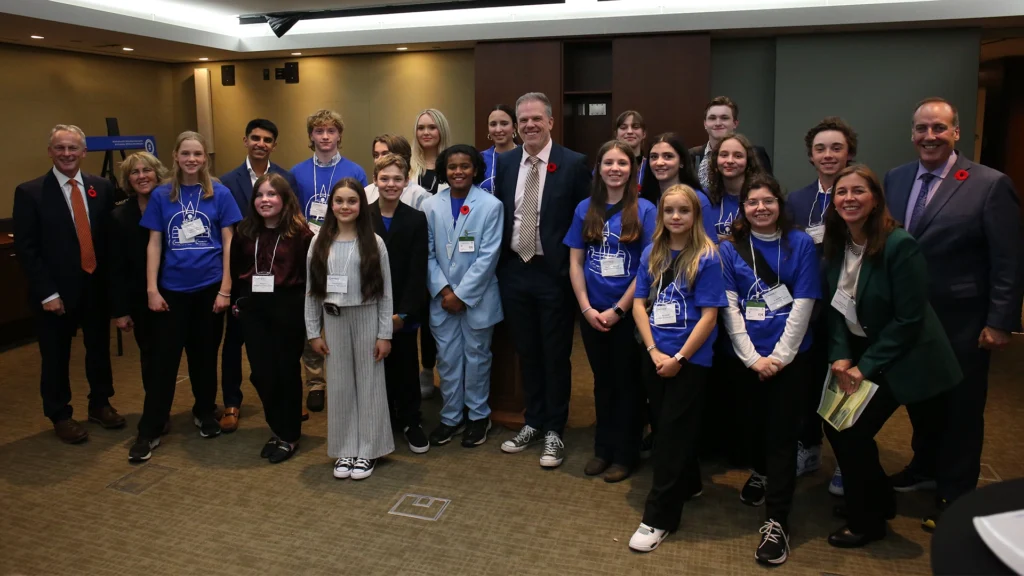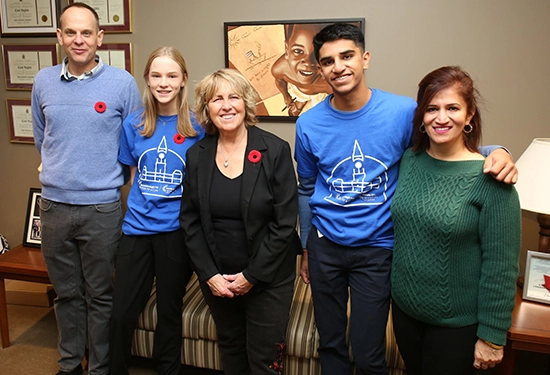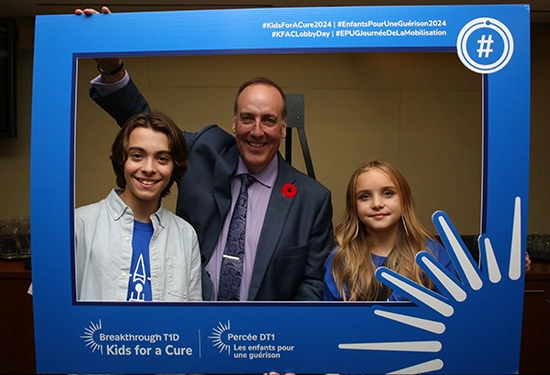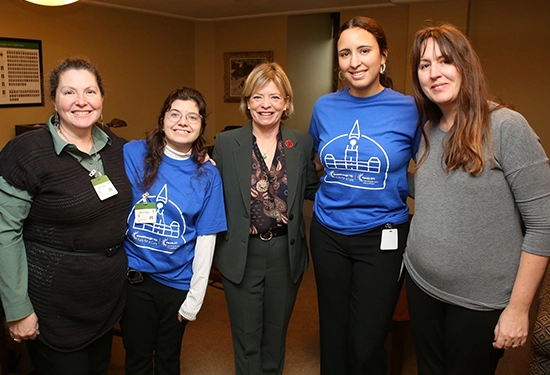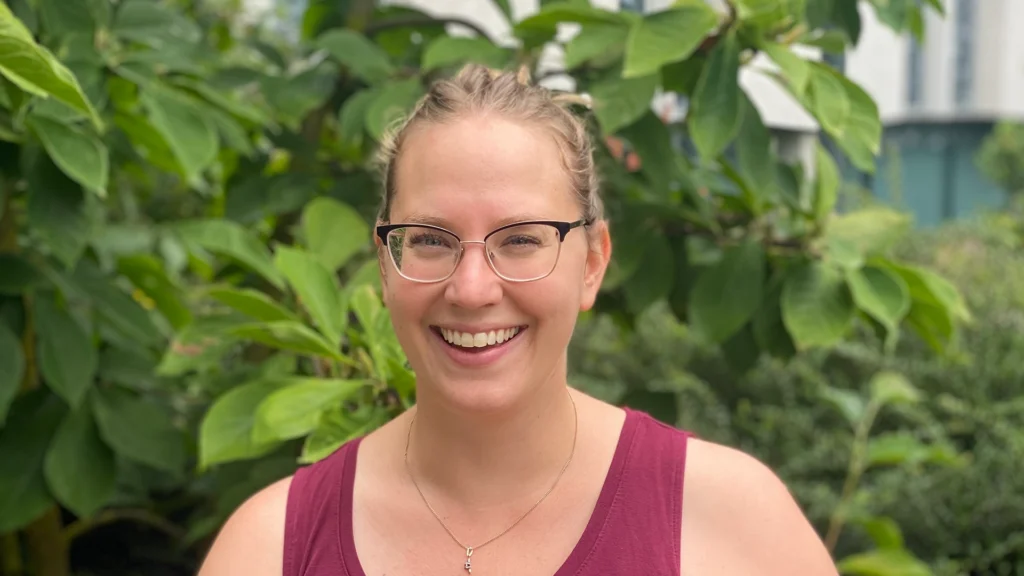
International Women’s Day (IWD) asks us to imagine a gender equal world. A world free of bias, stereotypes, and discrimination. A world that’s diverse, equitable, and inclusive. A world where difference is valued and celebrated. Together we can forge women’s equality. The theme for #IWD2025 is that we can all #AccelerateAction.
International Women’s Day (IWD) has been around for over a hundred years, and many of the issues it addresses unfortunately still remain. IWD reminds us to celebrate women’s achievement, raise awareness about discrimination and to take action to forge gender parity.
Breakthrough T1D Canada is proud to celebrate the achievements of the Canadian women researchers who have blazed a trail in the field of type 1 diabetes (T1D), and who have helped us in our mission of making everyday life better for people living with the disease as we work towards cures tomorrow.
Learn more about Dr. Priscilla White, an early pioneer in diabetes research and treatment, Dr. Dorothy C. Hodgkin who first discovered the three-dimensional structure of insulin, Dr. Helen M. Free, who along with her husband created Clinistix, allowing people to check their glucose at home, a significant advance in disease management. These women played a critical and essential role in advancing understanding of T1D, so that future generations of researchers could build upon their work.
Today, Breakthrough T1D Canada funding helps support many women T1D researchers who are continuing the legacy of those who came before them. They are now charting their own paths by investigating potential cures, new disease-modifying therapies, precision medicine, new and better refined diabetes devices, researching screening and T1D prevention and improving mental health supports to make life better for people living with T1D.
Meet the women researchers who have been supported by Breakthrough T1D Canada funding over the past year:
3 new trainees in partnership with the Canadian Islet Research and Training Network
Dr. Summer Helmi. Postdoctoral Fellow
Optimizing Neonatal Porcine Islet Differentiation Using the PBS Mini Vertical-Wheel ® Bioreactor: Advancing Xenotransplantation for Type 1 Diabetes
This innovative project explores a promising approach to treating type 1 diabetes using neonatal porcine islets (NPIs) as a cell replacement therapy. While NPIs offer advantages over other methods, optimizing their production for clinical use remains a challenge. This work could overcome critical hurdles in NPI production, bringing us closer to a more effective and accessible treatment for type 1 diabetes. The project aims to advance porcine islet differentiation strategies and transform diabetes care worldwide.
Dr. Nayara Rampazzo Morelli, Postdoctoral Fellow
Investigating a potential drug target in human beta cells during type 1 diabetes
Type 1 diabetes (T1D) is well known for its autoimmune aspects which leads to loss of most of the beta cells in the body and insulin deficiency. How the process of beta cell loss occurs remains uncertain, but recent work indicates that the accumulation of stressed beta cells can accelerate T1D onset. The aim of this study is to evaluate a particular drug target in stressed human beta cells to determine whether this approach could be used to delay the progression of T1D or improve symptoms in people living with T1D.
Dr. Shreyasi Sarkar, Postdoctoral Fellow
Assessing the potential of targeting 14-3-3z to restore functional beta cell mass
Dr. Sarkar’s research focuses on identifying new ways to increase beta cell number (mass) to treat T1D. I study a protein called 14-3-3z, and earlier work from Dr. Lim showed that targeting this protein during early development in mice improved insulin secretion and beta cell mass, making this protein a promising target for diabetes treatment. Dr. Sarkar is now exploring a new approach using Antisense Oligonucleotides (a synthetic strand of nucleotide that can modulate protein expression) to target this protein after birth and explore whether similar improvements can be achieved. This may represent a new approach to treat diabetes.
J. Andrew McKee Fellowship in Type 1 Diabetes
Dr. Alyssa Weinrauch, Breakthrough T1D Canada Centre of Excellence at UBC
Dr. Weinrauch’s work focuses on understanding how lipids affect the development and maturation of stem cell derived beta cells. Stem cell derived beta cells offer unlimited potential for curative therapy of T1D. However, currently they do not mature to the same level as human islets, and we believe that lipids may be involved in getting the immature stem cell derived beta cells to that final maturation stage.
The Knowledge Mobilization in Diabetes Prevention and Treatment operating grants, led by the CIHR Institute of Nutrition, Metabolism and Diabetes, in partnership with Breakthrough T1D, provide researchers and knowledge users the opportunity to work together to use research evidence to improve health services, programs, and policies.
Anne-Sophie Brazeau, McGill University – Integrating an online training platform into type 1 diabetes clinical care to empower self-management
Dr. Brazeau and her team will evaluate the implementation strategies for integrating SUPPORT, an online training platform, as part of clinic care and put in place activities to help make health care practitioners aware of the innovation. The aim will be to increase the use and uptake of the platform as well as shorten the time needed to translate research results into practice, ultimately improving the lives of people with T1D.
Valeria E Rac, University Health Network – Connecting diabetic retinopathy screening programs in Ontario.
Dr. Rac and her team will develop a pathway towards the creation of a provincial diabetic retinopathy screening program that includes a provincial registry. The team will also assess the screening needs of different patient populations living with diabetes across the province and set up knowledge gathering workshops to improve access to diabetic retinopathy screening programs, thereby improving eye health for those individuals living with diabetes.
Liris P Smith, Yukon University – Yukon experiences in management of type 1 diabetes: Patient and provider perspectives
Dr. Smith and her team will explore and describe the experiences of people and caregivers of people with T1D in Yukon, recognizing that the needs of the community are unique and that access to care is often limited in rural settings. The grant will allow the team to also describe the experiences of Yukon primary care providers for people living with T1D, with the ultimate goal to improve access to care and management supports.
Principle investigators on Breakthrough T1D-funded research projects
Dr. Shazhan Ahmed
Precise Treatment for Pediatric Diabetes: Providing the right care, for the right patient, at the right time, over time.
Dr. Gillian Booth
Evaluating innovative health care solutions to improve outcomes for persons with type 1 diabetes using a novel electronic data repository
Dr. Sonia Butalia
Aiming for Something Sweeter: Supporting youth with type 1 diabetes during transition from pediatric to adult diabetes care
Dr. Yi-Chen Chun
Translational and post-translational regulation of islet prohormones in T1D
Dr. Deborah Da Costa
Adaptation and pilot evaluation of a digital intervention targeting the psychosocial needs of individuals with pregestational diabetes: A mixed-methods multi-phase study
Dr. Jayne Danska
Microbiome regulation of beta-cell autoimmunity and type 1 diabetes
Dr. Megan Levings
Two studies:
Harmonizing biomarkers in clinical trials of ustekinumab
Innate & adaptive immune regulation in type 1 diabetes
Dr. Caitlyn Maikawa
Polymer materials for glucose-responsive delivery of amylin analogues
Dr. Despoina Manousaki
Development of a trans-ancestral genetic risk score for type 1 diabetes
Dr. Shweta Mital
Economics of screening and prevention of type 1 diabetes in Canada
Dr. Cristina M. Nostro
Three studies:
Macrophage-mediated strategies for promoting vascularization and immunotolerance in islet cell replacement therapies
Immune evasive islet-like cells by reduced immune recognition and local immune control
Using novel transplantation strategies and HLA-edited hypoimmunogenic hPSCs to develop a superior islet-like product for T1D treatment
Dr. Sara Nunes de Vasconcelos
Development of a new cell-based vascularization approach to improve b-cell survival
Dr. Amanda Oakie
Elucidating the role of Notch signaling in the proliferation of human stem cell-derived pancreatic endocrine cell development
Dr. Mahla Poudineh
A pH responsive hydrogel microneedle patch for continuous measurement of ketone bodies and glucose
Dr. Kacey Prentice
Elucidating the role of the Fabkin hormone complex in metabolic disease
Dr. Elizabeth Rideout
Leveraging biological sex and genetics for beta cell-directed precision medicine in type 1 diabetes
Dr. Marie Eve Robinson
Teaching adolescents with type 1 diabetes self-compassion (TADS) to reduce diabetes distress: A randomized controlled trial
Dr. Hyekyoung Sung
Enabling precision medicine in type 1 diabetes (T1D): leveraging integrative multiomics to understand T1D endotypes for therapy
Dr. Tricia Tang
Four studies:
Implementing a virtual care platform to improve mental health for type 1 diabetes in rural and remote regions of Interior British Columbia
Using a virtual care platform to deliver peer-led mental health support to rural and remote communities in BC: A randomized wait-list controlled trial of the REACHOUT intervention
Using a virtual care platform to deliver peer-led mental health support to rural and remote communities in BC: A randomized wait-list controlled trial of the REACHOUT intervention
The Mental Health and Diabetes Training Program: Preparing a new generation of providers
Dr. Alanna Weisman
Achieving equitable uptake and use of diabetes technologies among adults with type 1 diabetes
Dr. Diane Wherrett
Canadian population screening for risk of type 1 diabetes research consortium (CANScreen)
Dr. Holly Witteman
Find Your CommuniT1D: Customized virtual peer support for people living with type 1 diabetes
Dr. Xiao Yu (Shirley) Wu
Development of targeted nanoparticles for delivering therapeutics to islet cells for treatment of T1D
To read more about other Breakthrough T1D-funded women researchers: www.breakthrought1d.ca/research/meet-our-researchers/
Breakthrough T1D Canada – an all-women research department.
Chief Scientific Officer Dr. Sarah Linklater, along with her team Dr. Lara Green, Dr. Anne Marie MacDonald and Tafadzwa Kadye use their science backgrounds and passion for research to help Breakthrough T1D select and accelerate the most promising T1D research in Canada, and to effectively communicate this research to our stakeholders, government officials and collaboration partners in industry, academia and other non-profit organizations.
Christine Touringy, with support from Dr. Linklater oversees Breakthrough T1D Canada’s Mental Health + Diabetes Strategy as a maternity leave replacement for Amanda Hailman and is helping to maintain the momentum of this program, which works to address the critical gap in healthcare and community programming for mental health supports specific to diabetes.
Breakthrough T1D Canada – A woman led organization
In late 2023 Jessica Diniz took on the role of President and CEO of Breakthrough T1D Canada. In April 2023 Helena Gottschling was announced as Board Chair. Both work to ensure Breakthrough T1D Canada can deliver on its strategy, mission, and promise as an organization to donors, supporters, staff and all Canadians affected by T1D.
Breakthrough T1D Canada is proud to continue having both senior leadership and management teams that more than achieve gender parity, skewing heavily female. While acknowledging there is always more to be done, Breakthrough T1D Canada works daily to advance the IWD theme of #AccelerateAction.


 For newly diagnosed families, learning the calculations of carbs against insulin needs can be challenging at first, but with practice and consistency this should become easier over time. And even for people who have been living with T1D for decades, the sugar or carb counts of certain foods can vary, either by brand or a change to the product.
For newly diagnosed families, learning the calculations of carbs against insulin needs can be challenging at first, but with practice and consistency this should become easier over time. And even for people who have been living with T1D for decades, the sugar or carb counts of certain foods can vary, either by brand or a change to the product.  There is a free version and a paid version which has more features. The app is compatible with iOS and Android.
There is a free version and a paid version which has more features. The app is compatible with iOS and Android.

